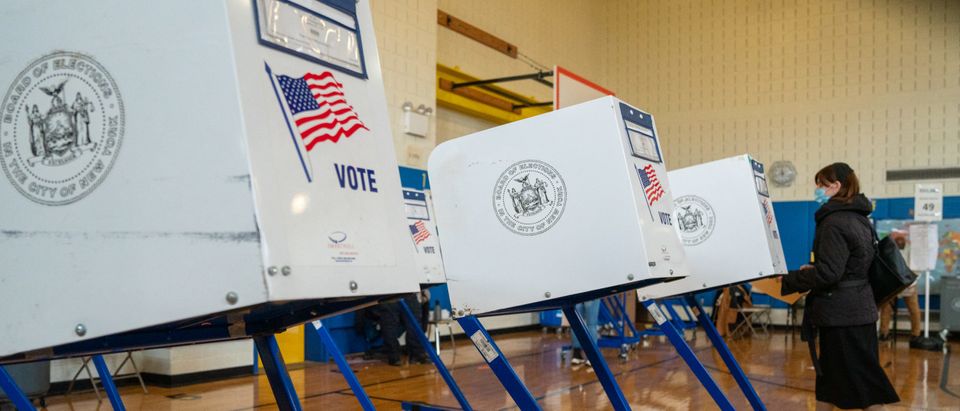Earlier this year, Democrats tried — and failed — to advance H.R. 1, a federal takeover of state elections. But they’re back at it again, this time with the so-called Freedom to Vote Act. Considering the contents of their radical proposal, a more accurate name would be the “Freedom to Cheat Act.”
Despite Democrat attempts to spin their latest voting bill as a “compromise,” in truth, it’s as radical as ever. It’s designed to thwart election integrity, manipulate state redistricting decisions and slant elections to help Democrats win.
The Freedom to Cheat Act would eviscerate commonsense state voter ID laws passed in 36 states, instead requiring only that a third person attests that a voter is who they claim to be. It would force 37 states to adopt automatic voter registration on short notice. In the past, such efforts have led to illegal immigrants being registered as well as massive registration errors. Additionally, 29 states would be forced to adopt same-day voter registration, making it easier to commit voter fraud by giving election workers no time to verify a person’s eligibility. On top of that, it would force states to let violent felons vote in federal elections as soon as they are out of prison — even if they have not completed all the terms of their sentence.
Far from an altruistic effort to “strengthen our democracy,” Democrats have a political stake in getting the bill passed: it would give them decisive power over the redistricting process. Democrats want to usurp states’ prerogative to draw their own congressional districts, instead implementing federal mandates for how districts are drawn, subject to enforcement by the attorney general. This would eliminate voters’ ability to make their own choice about how congressional districts are drawn and remove their capability to hold officials accountable for partisan gerrymandering.
It gets worse. Democrat politicians have a personal incentive to champion the Freedom to Cheat Act. The bill includes nearly the exact same campaign funding scheme as H.R. 1, in which taxpayers would provide a 600% match for political donations under $200. For example, a $200 donation to a House candidate would garner a $1,200 match in taxpayer funds for a total contribution of $1,400. Small dollar political donations topped $2.7 billion in the 2020 cycle, putting taxpayers potentially on the hook for billions more if that same pattern kept up in future elections.
Democrats claim the Freedom to Cheat Act is necessary to protect the right to vote, but that’s a lie. Discriminatory election laws are still illegal under the Voting Rights Act of 1965, which bans voting discrimination “based on race, color, or membership in a language minority group.” In truth, it’s never been easier for Americans to register and vote. Census Bureau data shows that the 2020 presidential election had “the highest voter turnout of the 21st century.
Voters can see through Democrats’ deception. They know what this is really about: a federal power grab that will fundamentally transform our electoral system.
Americans overwhelmingly support the very policies the Freedom to Cheat Act would repeal. Sixty-eight percent of voters believe that state legislatures should decide the voting rules and regulations for their state, not the federal government. Similarly, support for voter ID laws has risen 13 percentage points among Black Americans and stands at 81% among all voters. In fact, by a 33-point margin, Americans believe that voting in their area is “easy” and want the main objective of any reforms to focus on making sure elections are “fair and free of voter fraud.”
Despite its noble — but false — name, the Freedom to Vote Act is simply another partisan power grab by the federal government. Trust in our institutions, particularly our electoral systems, is vital to the stability and future of our republic. It’s essential we restore that faith by making it easier to vote and harder to cheat—not by abolishing these safeguards entirely.
Kyle Hupfer is general counsel for the Republican National Committee.


